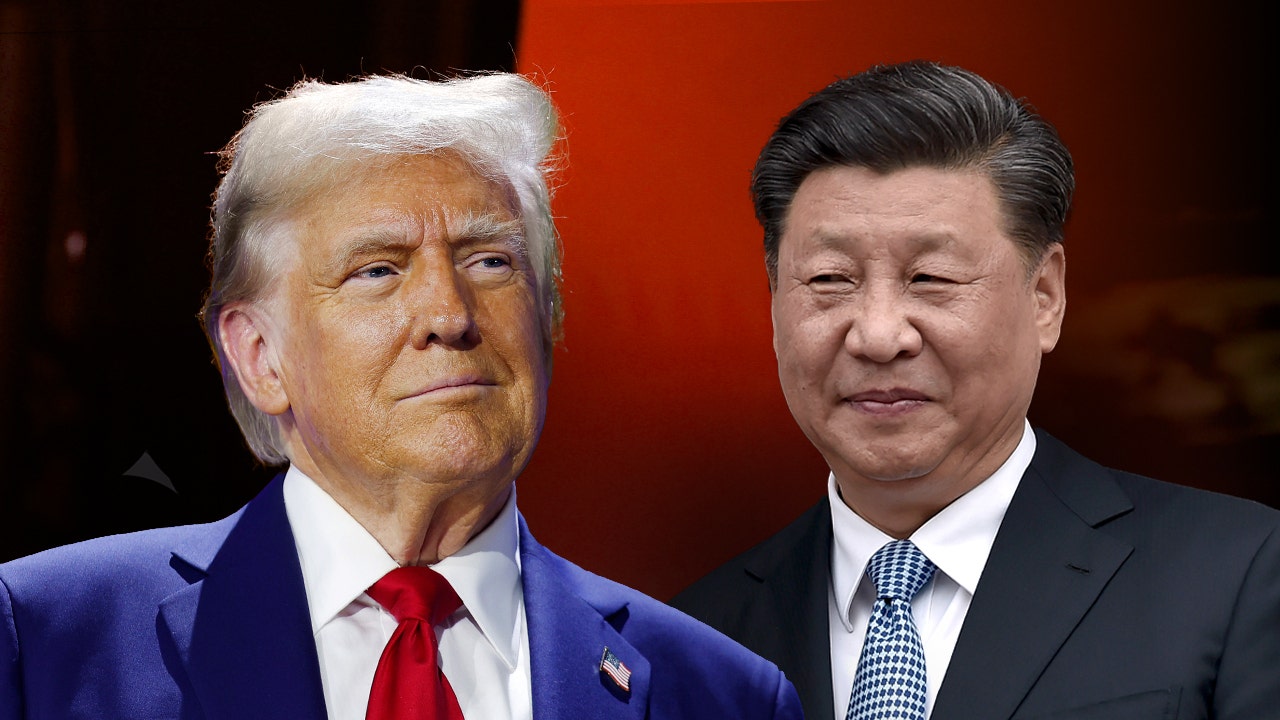Editing by Jeffrey Goldfarb and Aditya Sriwatsav
Finance
Breakingviews – Wall Street cues a lesson in Ivory Tower finance
/cloudfront-us-east-2.images.arcpublishing.com/reuters/VQJNDZNYAJK5LABH6S3RXXUKYI.jpg)
Demonstrators take part at Harvard University in Cambridge, Massachusetts, U.S., October 14, 2023. REUTERS/Brian Snyder Acquire Licensing Rights
NEW YORK, Oct 20 (Reuters Breakingviews) – Wall Streeters are trying to teach universities a lesson, but may provide them with a broader understanding of economics instead. Billionaire investors Marc Rowan and Bill Ackman are enraged over controversial positions on the Middle East at their respective alma maters, the University of Pennsylvania and Harvard. In doing so, they have drawn attention to the unsavory money-go-round in U.S. higher education and provided an opportunity for the system to become a freer market.
Leading American colleges are powered by affluence. The median family income for Harvard students is nearly $169,000, or about 2.5 times the U.S. average. Fewer than 2% of graduates came from poor upbringings and went on to become wealthy, according to Opportunity Insights, a research group at Harvard. Basically, the university is fully aware the rich help the rich stay rich.
Efforts have been made to change, including by rejecting the standardized testing that favors applicants who can, among other things, afford pricey preparation courses. Stockpiles of cash donated by Rowan, Ackman and other alumni also should theoretically make such institutions more accessible, but haven’t. The fair value of Harvard’s roughly $50 billion endowment is nearly twice as much as it was in 2009. Yet tuition and fees, at almost $75,000 annually, have increased by 58% over the same span, faster than the wider rate of inflation.
One reason is the willingness of attendees to borrow heavily for a diploma. Top-notch colleges have the luxury of abiding such debt partly because of the supply and demand curve taught in Economics 101. The eight Ivy League schools, for example, accept fewer than 6% of applicants. Many don’t pay full fare out of pocket to matriculate, but their family wealth suggests there’s more work to do.
Investment firms, like Rowan’s Apollo Global Management (APO.N) and Ackman’s Pershing Square, exacerbate the problem. Elite universities funnel many graduates to lucrative careers in finance and consulting, and studies have shown that social class often predetermines success. Roughly 30% of students from the Harvard class of 2022 earn more than $110,000; many will inevitably send checks back to Cambridge, Massachusetts.
These donations sustain the vicious loop, in part by providing access to the best students and teachers. Rowan and Ackman being irked by the universities supporting an event with antisemitic speakers and student groups blaming Israel for the Hamas attacks suggests academic prestige has its limits, however. And yet Rowan urging fellow grads to stop sending money might helpfully force colleges to rethink their business models.
Ideally, Ivory Towers would price education closer to its actual value rather than what people are willing to pay. Merit might carry more weight than wealth. Students could seek jobs based on skills and interests rather than future earnings potential. In the end, it would help curb some of the undue power wielded by the upper class.
Follow @thereallsl on X
CONTEXT NEWS
Apollo Global Management Chief Executive Marc Rowan has called on University of Pennsylvania President Liz Magill and Chair of the Board of Trustees Scott Bok to resign over a decision to allow antisemitic speakers at a university-supported Palestine Writers Literary Festival.
Rowan, who also urged fellow alumni to stop making donations, on Oct. 11 made public an op-ed he wrote for the student newspaper that went unpublished. He is chairman of the board of advisors at Penn’s business school, Wharton.
Since then, other large donors including Renaissance Technologies’ David Magerman, Estee Lauder heir Ronald Lauder and politician Jon Huntsman have said they will withdraw their funding.
Separately, former Treasury Secretary Larry Summers and Pershing Square founder Bill Ackman have criticized Harvard University after it failed to distance itself from a group of students who blamed Israel for the Hamas attacks against the country.
Ackman is demanding that Harvard release the names of students behind organizations that signed a letter saying they hold the “Israeli regime entirely responsible for all unfolding violence.”
Our Standards: The Thomson Reuters Trust Principles.
Opinions expressed are those of the author. They do not reflect the views of Reuters News, which, under the Trust Principles, is committed to integrity, independence, and freedom from bias.

Finance
The Shift ToAgentic Finance Has Serious Implications For Banks

Humanoid robot is on display during 2023 World Robot Conference at Beijing Etrong International Exhibition & Convention Center on August 19, 2023 in Beijing, China. (Photo by Zhan Min/VCG via Getty Images)
VCG via Getty Images
As I wrote back in 2019, and McKinsey wrote back in August, once AI-powered software agents (that is, bots) start making more sophisticated financial decisions on behalf of customers, we will see a reshaping of banking that will affect billions of dollars in revenue. My bumper sticker version of future agentic finance landscape is quite straightforward: The AI revolution isn’t banks getting AI, it is customers getting AI.
Agentic Finance Is Inevitable
This has huge implications for the banking sector. The former Standard Chartered Group Chief Data Officer Shameek Kundu said in the Citi GPS’ report on “AI in Finance: Bot, Bank & Beyond” that “the biggest new thing will be the growth of non-human customers” and I could not agree more, which is why I have been looking at the implications for some time. In particular, I have become fascinated to see how banks and other financial services organisations (who sell very commoditised products such as checking and savings accounts) will adjust to acquiring agent customers who do not care about the bank Superbowl ads or which sports teams it sponsors.
When my AI-controlled smart wallet uses open banking data and decides that I need a different savings account or refinance my car loan, how will my network of bot advisors decide which provider to use? After all, savings accounts and car loans are boring, there are lots of them to choose from and even if I did take the time to read the terms and conditions I wouldn’t understand them. When it comes down to it, I don’t really want to be in the loop on these because I’ve got better things to do. Bot’s don’t/
Now one rather obvious thing that bots will base their decisions on will be price, so from a strategic perspective it seems to me that banks will likely need to compete much more sharply on price to retain clients’ wallet share. Bots can compare multiple prices simultaneously, so being the cheapest will likely always be a significant factor. One strategic response from institutions could therefore be to adopt an execution-focused strategy focused on operational efficiency. They could cut out the money wasted on TV advertisements that bots don’t look at and use the modern to modernise and revitalise their IT infrastructure, thereby enabling them to compete on volume and win those deals that are purely based on price.
In this kind of environment, as you might easily imagine, all prices will rapidly fall to the lowest level and this has very significant implications on the business models of commercial banks and others. In fact McKinsey’s new Global Annual Banking Review for 2025 says that $23 trillion of the $70 trillion in the consumer banking sector are held in zero interest accounts. Unless banks adapt their offerings, this could amount to a loss of 9% to the bottom line, which would push average returns for banks below the cost of capital.
AI has a role to play in revitalising the banks infrastructure, of course, and this will help to reduce costs (McKinsey think this might mean initial savings of between 15% and 20% of operating costs) but of course those benefit will soon be competed away. This means that banks will need to find other competitive advantages. But what could these be?
Future CX.
© Helen Holmes (2022).
In common with many other industry observers, I think that one area to focus on is digital identity. For commercial banks, they have an inbuilt advantage. As Kirsty Rutter, the Fintech Investment Director at Lloyds Banking Group in the U.K., said “our digital identity has become our most valuable digital asset”. Numerous fintech companies have emerged working to tackle different aspects of the identity challenges across identification, authentication and authorisation but there is still way to go to get a comprehensive infrastructure in place to provide the essential elements of the trust framework.
When you look at the rapid evolution of agentic finance and agentic commerce, it is clear that the platforms and protools are outpacing the trust frameworks needed to build real-world products and services. In another of their recent reports, McKinsey pointed in this direction and said that what they label “credentialling and identity” is the first of their key control points in the agentic economy because agents need secure, user-granted permission before they can initiate transactions across multiple institutions. Therefore, as they point out, organisations that already manage high-trust credentials start with a clear advantage. They go on to highlight some success factors: zero-trust architectures that never assume persistent access, dynamic consent via standardized protocols (for example, OAuth2/OpenID Connect) and continuous audit trails.
Agentic Finance As Dark Energy
Financial institutions should be looking at the opportunities here as a way of staying relevant, as a way for remaining relevants to transactions that pass unnoticed through the current financial systems, a kind of financial dark energy made of wallets and stablecoins, AP2 and x402, exchanging value without ever touching banks and banking networks. All of those transactions wll need varying kinds of trust and one of the reasons why I am so bullish about the transition to agentic finance is precisely because of the transition from antiquated security theatre based on passwords, pictures of buses and emailing photos of passports to an infrastructure of privacy-by-design privacy and actual security. The fact of the matter is that people are just not very good at security: We are the weakest link and, as I am fond of remarking, it’s quite easy to fool someone with a fake picture of Brad Pitt, it’s impossible to fool their bot with a fake Brad Pitt digital signature.
It’s not a hard prediction to make that AI is going to change our industry just as its going to change every other industry. But I think it’s important to note that this is about more than saving a few people in the call centre or making slightly better credit decisions. The industry is going to be shaped by what customers do with AI and the evolution of agentic finance will lead to a very different kind of industry but it will be an industry that services its customers far better than the half-analogue, half-digital transition industry that we have today.
Finance
Weekly Numerology Horoscope, Oct 27 – Nov 2: Luck, love & finance decoded

Number 1: (People born on 1, 10, 19, and 28 of any month)
Ganesha says to stay organized and maintain good communication with colleagues and customers to gain cooperation. Remember, calculated risks can improve your professional life. It is most important to manage your financial situation this week. Evaluate your current financial situation and establish clear goals for the short and long term. Create a reasonable budget that allows you to meet your essential expenses while saving for the future. Consider seeking expert financial advice or exploring investment opportunities to improve your financial portfolio. Be disciplined with your spending habits and remember that small changes can gradually lead to substantial financial growth. In matters of the heart, this week offers an opportunity to strengthen existing relationships and foster new ones.
Number 2: (People born on 2, 11, 20, and 29 of any month)
Ganesha says whether you’re starting a new project or trying to get better at your job, this is the perfect time to set clear goals and make a plan. It may also be a good idea for you to work well with your colleagues and talk to them effectively. Don’t be afraid of new challenges, meet new people in your professional network, and show that you are good at what you do. This week can provide immense potential for career growth and recognition. It’s a good idea to be careful with your money this week. Take a close look at how you’re spending and make some changes if necessary to stay on the right financial track. Look for opportunities to save your money and invest it wisely so you can achieve financial security in the long run.
Number 3: (People born on 3, 12, 21, and 30 of any month)
Ganesha says to keep your focus on personal and professional development, as expanding your skills can lead to long-term success. Have confidence in your abilities, and believe that your efforts will yield positive results. From a financial point of view, there is a need to make careful decisions this week. Assess your current financial situation, establish a budget, and prioritize your needs over wants. It is essential to take a more proactive approach towards your financial goals. Look for opportunities to cut down on unnecessary expenses and save for future endeavors. Keeping an eye on your financial situation will pave the way for stability and security in the long run. In terms of love, this week is going to be full of harmony and growth. If you are in a committed relationship, open communication and mutual understanding will be important.
Number 4: (People born on 4, 13, 22, and 31 of any month)
Ganesha says to stand out from the crowd and utilize career opportunities, it is important to be proactive and show leadership qualities. Working well with others and communicating effectively will help you achieve your goals and create a good work environment. Your financial situation looks stable this week, so it is a good time to make finance-related decisions. This is the right time to think about how you are spending your money. You need to create a budget that is in line with your long-term goals. By being careful with your finances and planning wisely, you can work on improving your financial situation. It can also be a good idea to take advantage of investment opportunities after doing proper research and taking advice from experts to improve your financial future.
Number 5: (People born on 5, 14, and 23 of any month)
Ganesha says it’s also important to think about your finances during the week. Look at what you’re spending and figure out where you can make changes for the better. Consider creating a budget or reviewing one that you can use wisely during the week. This week is a good time for love and strengthening your relationships. Whether you’re single or in a committed relationship, it’s important to focus on your emotional connections with the people you care about. Try to improve your communication and show your affection to those close to you. By embracing the changing nature of life, you will be well on your way to a fulfilling and successful week ahead.
Number 6: (People born on 6, 15, and 24 of any month)
Ganesha says you can also be more productive by organizing your work area, focusing on your tasks, and managing your time better. In terms of finances, it is important to keep a good balance this week. Think about your current financial situation and make clear goals to improve it. Create a budget that matches your goals, such as saving for a large purchase, paying off debt, or investing for the future. Find ways to cut down on unnecessary spending and be more careful with your money. This might include looking for better deals, cooking at home, or reconsidering subscription services. Focus on your relationships and matters of the heart. Love and relationships require your time, care, and open communication.
Number 7 (People born on 7, 16, and 25 of any month)
Ganesha says it is important to plan for various parameters of life in this combined week. This week will bring a variety of experiences that will impact your personal life, business, finance, and love life. Let’s take a closer look at each area and try to take away the main takeaways of the week. In this heavily raced world, it is important to make time for your personal life, which includes nurturing relationships and keeping your secrets. This week, set aside some time to stock up on good times and create lasting memories for your loved ones, be it family or friends. To strengthen your social integration, promote your universal well-being, and provide valuable support, especially during your cooperation time. This week has brought an opportunity for you to take a step forward in your professional journey. Focus on the goals of your venture, find a few, and make a plan, as well as create level steps to reach them. Be on the lookout for opportunities to collaborate with enterprises, starting with new skills training, mentorship, and making the most of growth opportunities within your organization.
Number 8: (People born on 8, 17, and 26 of any month)
Ganesha says at the beginning of the new week, you need to stock up and prepare. There may be changes in your personal life, business, finance, and love life during the week. So let us revive ourselves and get ready for the journey ahead. This week you may feel a sense of balance and peace in your personal life. You can focus more on yourself and your relationship. Take some time to think about your life and buy more things you like. Pay attention to your mental and physical health and deliver your presentation even if you don’t have everything you need. You work with people to lay the infrastructure and build a strong support system over time, which can bring you great joy. Your performance in professional life is likely to be good this week. If you are working on a project or looking for new opportunities, your hard work will bear fruit. Don’t be afraid of dissenting opinions and different thinking. Working well with documents and communicating effectively will help you reach your goals. This week is a chance to embrace your skills and knowledge, so be prepared for any opportunities that come your way.
Number 9: (People born on 9, 18, and 27 of any month)
Ganesha says this week will be full of stamina for you. Welcome all opportunities to feel balance and joy in your personal life, finances, finances, and balance. Devote your time and effort to each area, this way you can pave the way for an individual and successful week. Start each day with a clear plan and strong willpower. It is very important to focus on personal development to achieve complete success this week. This is a great time to meet new people, read, take online courses, or gain new skills. This week, maintaining achievable goals and keeping track of your progress will help keep you motivated and stable. If you’re willing to leave your comfort zone behind and embrace growth, you’ll learn more about yourself and change for the better during this period. Invest your time and efforts in your profession. Your hard work and sketch will bring you historically positive results. Also, focus on your growth as a person while making important decisions based on your principles.
– Ends
Finance
Shropshire Council asks for urgent government financial support

Shropshire Council has asked the government for urgent financial support to allow it to continue delivering services.
The authority said a detailed review of its budget is expected to reveal it could overspend by £50m if nothing is done and its savings of £34m would not be enough to meet the shortfall.
Unless more money can be found, the council said it would have to issue a Section 114 notice, making it effectively bankrupt.
The council declared a “financial emergency” last month and said it would be “making some difficult decisions over the next few weeks and months to save money and bring more in”.
The Liberal Democrat-run authority said the review, which is due to be published on 10 November, showed “the true scale of the financial challenge”.
If it has to issue a Section 114 notice, the government could then take action to reduce spending through the appointment of commissioners, as it has done in Birmingham.
The council said it had had several conversations with the government about the issue, which were initially focused on “longer-term funding the council needs over the next three years to enable it to invest in transformation, stabilise its budget and bring an end to its financial emergency”.
But the growing budget pressures have since forced the council to ask for emergency funding.
The authority was run by Conservatives until the Liberal Democrats took control in May.
Roger Evans, the councillor responsible for finance, said: “For a number of years now the council has been overspending its budget – a budget that was set by the previous administration.”
He said the council had been using reserves to meet the deficit and there was now “none left for us to use to help us meet this shortfall”.
Evans also said a shortage of government funding over the years had been “contributing hugely to our financial challenge”.
He thanked staff for their efforts to meet the budget shortfall and added: “Despite our challenges, I truly believe that together, we can make Shropshire Council sustainable.”
-

 New York3 days ago
New York3 days agoVideo: How Mamdani Has Evolved in the Mayoral Race
-

 World6 days ago
World6 days agoIsrael continues deadly Gaza truce breaches as US seeks to strengthen deal
-

 News5 days ago
News5 days agoVideo: Federal Agents Detain Man During New York City Raid
-

 News6 days ago
News6 days agoBooks about race and gender to be returned to school libraries on some military bases
-

 Technology6 days ago
Technology6 days agoAI girlfriend apps leak millions of private chats
-

 Politics6 days ago
Politics6 days agoTrump admin on pace to shatter deportation record by end of first year: ‘Just the beginning’
-

 News6 days ago
News6 days agoTrump news at a glance: president can send national guard to Portland, for now
-

 Business6 days ago
Business6 days agoUnionized baristas want Olympics to drop Starbucks as its ‘official coffee partner’

















